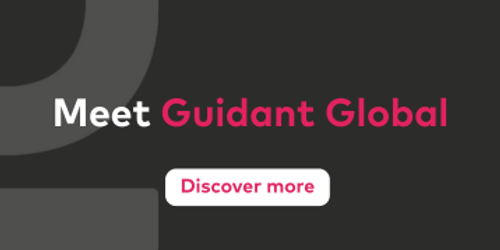
What’s the difference between MSP and RPO?
Workforce management has become increasingly complex. How people are engaged, compliance requirements and what talent pools want has evolved drastically over the last decade. And with this change, workforce solutions have adapted. Employers can now tap into a wealth of external support, whether that’s through a Managed Service Provider (MSP) or a Recruitment Process Outsourcing (RPO) solution.
But what are the differences between an MSP and RPO? And which solution will deliver the best results for your business?
An overview of an MSP and its benefits
A Managed Service Provider typically focuses on the temporary workforce and is responsible for the complete end-to-end management of a firm’s contingent workers. This includes controlling and streamlining supplier relationships and performance, the development and implementation of strategic workforce plans, worker compliance, statement of work management - and much more.
For HR and procurement teams seeking to efficiently manage a globally flexible workforce, working with an MSP has multiple benefits:
Visibility: The non-permanent workforce can often be a bit of a hidden secret in a business. With multiple suppliers being managed by different groups it can be a challenge to keep track of spend, resources and performance. However, an MSP partnership can remove the administrative burden and provide the information, data and visibility of contingent workforces to inform strategic resource decisions.
Agility: An MSP has the experience to implement agile solutions for your non-employed workforce. The ability to respond to market shifts with ease is a significant competitive advantage for today’s business and a Managed Service Provider will be a perfect partner to find the flexible talent you need, when you need it.
Scalability: With businesses facing continued disruption, spikes in demand for resources and seasonal fluctuations, having the contingent resources on hand to scale up operations (and scale back) when necessary is significantly valuable in the modern workplace. An MSP will ensure your firm is never caught short with its contingent resources.
Compliance: Employment law for the non-permanent workforce is highly complex and widely nuanced across geographies. However, by partnering with an MSP employers can rest assured that no matter where and how a worker is employed, they will be engaged in a compliant manner.
An overview of an RPO and its benefits
So, if an MSP manages the non-permanent workforce, what does an RPO do? Essentially recruitment process outsourcing covers the management of permanent recruitment. Under an RPO solution, an external provider will embed a talent acquisition team into the business, including onsite recruiters, to run strategic, flexible hiring processes and incorporate the right recruitment technology to drive efficiencies across a company’s permanent resources.
While an RPO solution focuses on the perm workforce, the benefits are not too dissimilar to an MSP:
A focus on quality: An RPO is responsible for driving up the quality of hires and sourcing for hard-to-fill or high-volume permanent roles. They help HR and talent acquisition teams build global strategic talent plans and run these for the business.
Cost savings: An RPO is usually measured on time-to-hire, cost-of-hire and quality-of-hire, so it is in the provider’s interest to drive recruitment cost-efficiencies without compromising on the quality of talent. This includes reducing advertising budgets and talent acquisition spend through the implementation of more strategic hiring processes.
Agility and scalability: While the permanent workforce isn’t awarded the same high level of flexibility as its contingent counterpart, agility and scalability is still crucial. In order to be prepared to respond to changing demands and the evolving global market, employers need to develop strategic talent pools – a task that an RPO is well-placed to deliver.
Global compliance: Just as with the contingent workforce, compliance for the permanent workforce is also highly complex and volatile. Employment law is constantly being adapted and the international variances can present significant challenges and risks for a global business. Having the right Recruitment Process Outsourcing solution in place can drive compliance across your permanent workforce.
Technological advancements: There’s a plethora of recruitment technology available, making it difficult for employers to know what will truly work for their perm staffing needs. That’s where an RPO can add real value. They will have worked with a range of tech platforms and software in the past and will be able to both guide your decision and manage the implementation of any new processes.
A focus on employer brand and candidate experience: An RPO will also help develop a strong and competitive brand that has the candidate experience built into its foundations, to ensure business are not only able to attract the best talented people but also retain them.
What about Contingent RPO and Total Talent Management?
While the above certainly paints a picture of the differences between an MSP and RPO solution, other options have emerged which have led to some confusion around how separate MSP and RPO are. In particular, the use of the term contingent RPO has grown recently.
Contingent RPO combines the benefits of a recruitment process outsource solution – technological implementation, employer brand development, dedicated direct sourcing team and an employer value proposition – within a contingent MSP model. It is often used when an employer needs to significantly scale-up high-demand and low-supply skillsets.
With more employers managing a hybrid of flexible and permanent talent, workforce management solutions have also expanded to incorporate the two, leading to the concept of Total Talent Management (TTM). This solution integrates RPO and MSP programmes to deliver a holistic, all-encompassing talent management strategy and is, in our experience, becoming an increasingly attractive approach in the modern world of work.
But to make sure you’re getting the most of your solution, having a partner with experience across MSP, RPO, Contingent RPO and TTM can leave HR and procurement teams safe in the knowledge that their workforce is in good hands.
Want to learn more about Guidant Global’s RPO and MSP capability?
Discover our range of global workforce solutions.
Australia
Suite 1403, Level 14
309 Kent Street
Sydney
NSW 2000
United Kingdom
United States
27777 Franklin Road
Suite 600
Southfield
Michigan 48034



